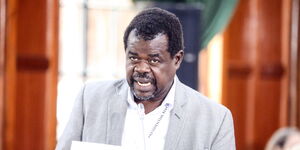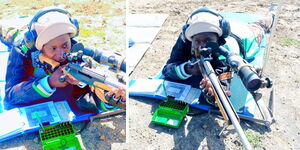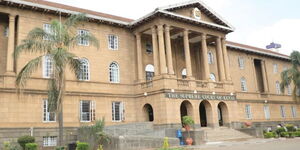People's Liberation Party leader Martha Karua, former Chief Justice Willy Mutunga, and several activists have filed a case against the Tanzanian government at the East African Court of Justice (EACJ).
The leaders, who were among those who were denied entry to Tanzania, are accusing the Tanzanian government of unlawful detention, refusal of entry, and deportation.
Between May 18 and 19, the leaders and other activists, including Gloria Kimani, Lynn Ngugi, Hussein Khalid, and Hanifa Adan, were blocked at the Julius Nyerere Airport and denied entry to the East African country. They had gone to observe the case of Opposition Leader Tundu Lissu.
The leaders and activists are also accusing Tanzania of breaching multiple provisions of the East African Community (EAC) Treaty, including commitments to the rule of law, good governance, transparency, and free movement across member states.
They are now seeking special damages from the Tanzanian government following the inconvenience they went through during the events. They are also demanding an apology from the Tanzanian Government.
The petitioners, whose passports were stamped with ‘denied entry’, want the signage removed from their travel documents, and want the EACJ to restrain Tanzania from further obstructing the free movement of East African citizens.
Following the petition, the case is expected to be transferred to the EACJ headquarters in Arusha, awaiting a hearing date.
The unfortunate events that took place dented the relationship between the two nations, which for the longest time have enjoyed good relations.
While the activists maintained that their role in the Lissu case was purely observational, the Tanzanian government argued that they were poking their noses at matters that did not concern me.
The situation escalated when two activists, Boniface Mwangi from Kenya and Agather Atuhire, who had managed to gain entrance to the country, were arrested and detained for four days in the country.
They were released at their various borders after days of demands and protests for their release. They later put the Samia-Suluhu-led country on the spot for severe torture and abuse.
The situation forced President William Ruto to issue an apology to Tanzania and Kenyan youths as it had escalated into an online spat threatening the diplomatic relations of the two nations.












